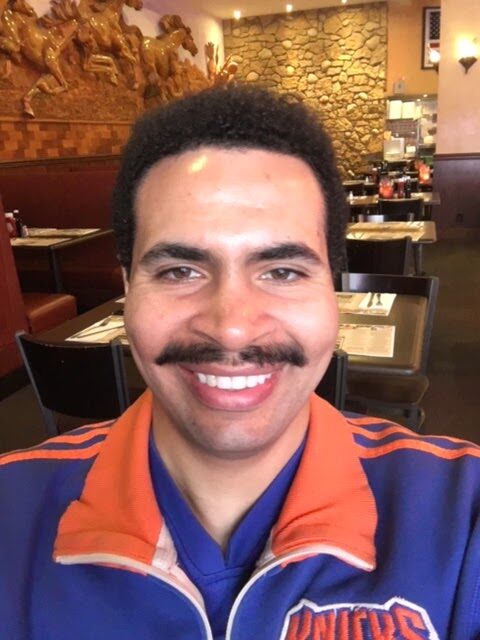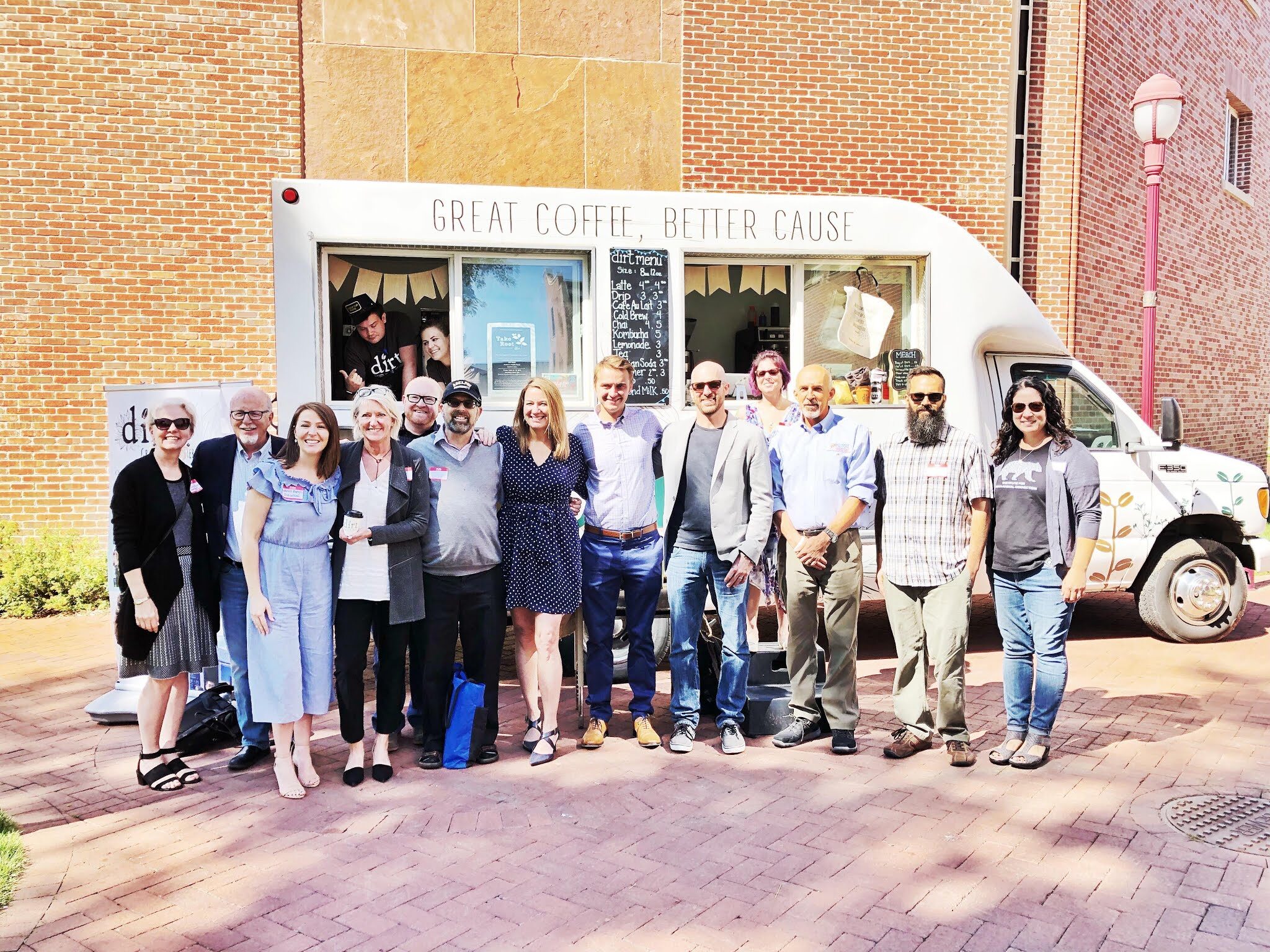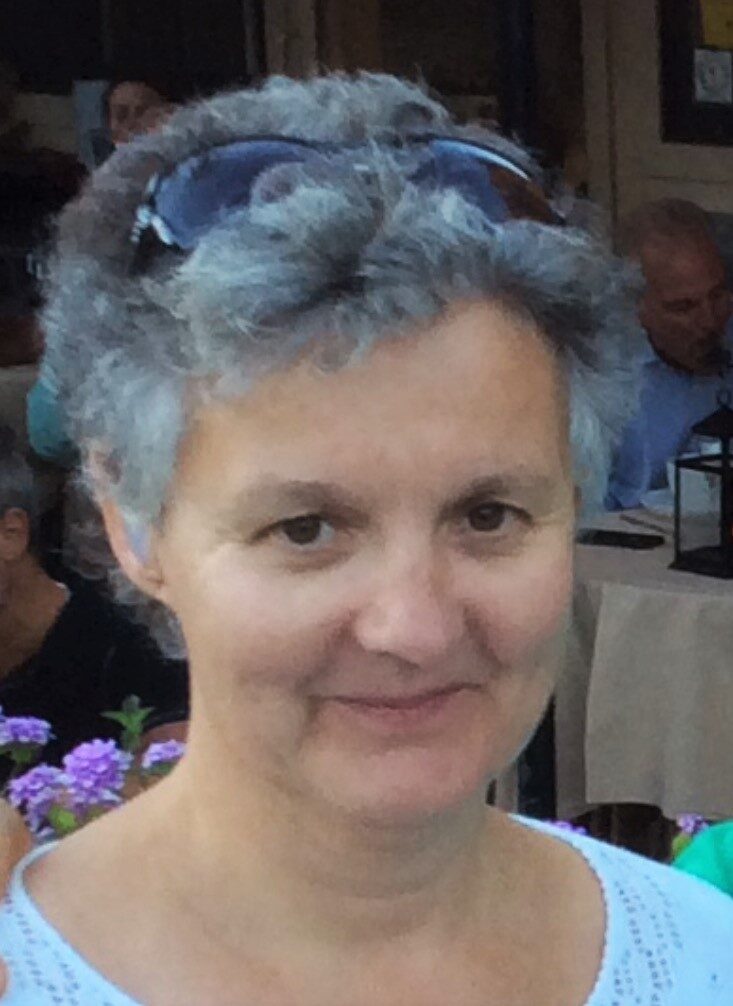Autistic people want to work as caregivers, but the system makes it difficult for them to stay in their jobs. This is a loss for the clients, who lose an autistic mentor, and for the autistic support worker, who can be both traumatized and unemployed.
Tag: employment
If your workplace wants to successfully recruit autistic and neurodivergent job candidates, consider these insider tips on how to make the hiring process easier.
Emanuel Frowner www.instagram.com/emanuelfrowner Emanuel Frowner (photo courtesy the author) [image: A smiling mixed race man with short black hair in a natural style, and a mustache. he is wearing a collared orange-and-blue Knicks pullover.] I grew up mostly in the Bronx with my dad and my grandmother, and I still live there. The neighborhood was dangerous during my childhood because of fighting and drugs—a few people were killed. Therefore, I could not go out alone (until I was 17) and my folks were very protective of me. I would see my mom on the weekends. Sometimes, I would hang out with my siblings (with my folks). They had a different mom than I did, but we had the same dad and grandmother. Even though my grandmother looked very white, she called herself black, but my dad did not agree with her on that. My mom called herself black as well.…
Steve Silberman, Shannon Rosa, and John Marble [image: Three adult white nerds, posing together and smiling.] Shannon Des Roches Rosa Senior Editor A large, friendly, and neurodiverse crowd came together at Square headquarters in San Francisco last night, to hear Steve Silberman and John Marble in conversation about autism and neurodiversity. The event was organized by by TPGA contributor Chris Williams and TPGA friend Chris Ereneta, Square employees both. We live-tweeted both the witty, empathy-filled conversation and the useful Q and A afterwards, but as tweet streams can be hard for some people to parse, here’s a streamlined text (and typos-fixed) version: Steve is talking about the origins of his book NeuroTribes, how in the early aughts, before he began his research, he thought autism was rare. And how the conspiracy theories about causation were really running rampant. He wrote his classic Wired article The Geek Syndrome in 2001, talking about…
Photo courtesy Max Sparrow [image: Symposium organizers and presenters stand in front of the Dirt Coffee Truck while the Dirt workers smile from the left window of the truck. From left to right, the people pictured are: Dr. Elaine Meyer, Bill Morris, Lauren Burgess, Kris Harrington, Drew Webster, Dr. Stephen Shore, Dr. Kristie Koenig, Thomas Koenig, David Finch, Becca Lory Hector, Philip Tedeschi, Antonio Hector, Erica Elvove.] Maxfield Sparrow UnstrangeMind.com I am sitting in Dirt Coffee in Littleton, Colorado. Ryan, an outgoing young woman with enormous blue eyes, has served me a massive Americano to which I’ve added tons of cream. “Do you know about our mission?” she asks me. I do know the mission of Dirt Coffee, but I let her tell me anyway because I want the joy of hearing the words again. I discovered Dirt Coffee earlier today when I attended a symposium at the University of Denver’s…
The Autistic unemployment rate is higher than the unemployment rate for all disabled Americans in general, and higher than the unemployment rate for non-Autistic Americans with developmental disabilities.
M. Kelter theinvisiblestrings.com Ultra Testing is a New York-based tech firm that was founded on the idea of incorporating autistic differences into their work ethos. At a time when an estimated 80% of adults on the spectrum are unemployed, Ultra Testing is using attribute metrics and other non-traditional hiring practices to recruit autistic employees. A 2016 Recode article reported that 75% of the company’s employee base identifies as being on the spectrum. I recently communicated with the firm’s co-founder, Art Shectman, about how the company began, the value of ditching traditional hiring practices, and what employers need to know about developing a neurodiverse workforce. M: Regarding Ultra Testing’s decision to focus on hiring autistic employees: can you describe the origins of this idea, both generally (how the idea came about), and specifically (how you actually went about recruiting and bringing in folks on the spectrum?) Art Shectman | source: Twitter…
TPGA is observing Autism Acceptance Month by featuring accounts from autistic people about the differences accommodations (or lack thereof) make in their lives. Today’s story is from Sara Luterman, about the “frequent adjustments” that are necessary for her to be properly accommodated at her workplace. Sara Luterman www.nosmag.org The statistics around autism and employment can be incredibly discouraging. Forty-two percent of autistic people in their twenties — people like me — are unemployed, even though only 26% of overall young disabled people are out of work. This might seem counter-intuitive. After all, if someone can do well in college or even graduate school, surely they should be able to do well once they join the workforce? Unfortunately, it doesn’t work that way. Like many of my autistic peers, I have struggled to keep a job. I was fired from the first full-time job I ever had after just two weeks:…
Shannon Des Roches Rosa www.ThinkingAutismGuide.com Yesterday was my autistic teenage son Leo’s annual IEP meeting, in which various people who help him achieve maximum awesomeness (teacher, speech language pathologist, occupational therapist, school district representative, home program director, etc.) meet at his school, to determine what Leo-appropriate educational goals will be for the following year. These meetings are generally collaborative, positive, and entirely Leo-centric. I usually leave feeling relieved, and that my son is surrounded by the right people (and, knowing that this is not the case for many other families, incredibly lucky). This year, though, I panicked a bit. Not because of the approaching year’s goals, but because this was the first year we talked about a transition plan. About what Leo would do after he turned 22, and would no longer be able to attend his school. And optional placeholders like, “Employment: Day program, supported workplace.” Which made me…
Interview by M. Kelter theinvisiblestrings.com Anlor Davin is the author of the upcoming memoir, Being Seen. In her book, she describes lifelong struggles with “sensory chaos” and social pragmatics, all of which culminated in an adulthood diagnosis of autism. She was raised in France, but later immigrated to the United States. We recently spoke via email about these experiences, and her thoughts on navigating life on the spectrum. — M: I hear from many adults who suspect they are autistic, but grew up before spectrum diagnoses were available. They often ask if looking into the possibility of a diagnosis is something they should do, or if it is something they should avoid, since they’ve “made it that far” without one. I wonder if you could address those questions. What did the diagnosis mean for you, in terms of your quality of life? Were there any downsides? Anlor Davin [image: portrait of…







